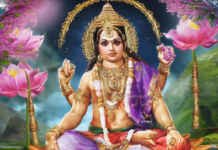The story of Kumari Kandam has captured the imagination of explorers and historians for centuries. Some theories suggest that it was a lost continent that existed in the Indian Ocean, similar to the legends of Atlantis. This mythical landmass is said to have been a thriving civilization with advanced knowledge and technology that predates even the oldest known ancient civilizations. The concept of Kumari Kandam is deeply rooted in Tamil literature and folklore, with references in ancient texts like the Silappatikaram and Manimekalai. In this article, we will delve into the mystery of Kumari Kandam, exploring its origins, supposed location, and the evidence (or lack thereof) that supports its existence.
Origins of Kumari Kandam
According to Tamil literature, Kumari Kandam was a vast landmass located to the south of present-day India and extending towards the Indian Ocean. It is believed to have been an advanced civilization with a profound understanding of technology, architecture, and sciences. The Sangam literature, a collection of ancient Tamil texts, contains references to this lost continent, portraying it as the cradle of civilization for the Tamil people.
The Kanda Puranam, a Tamil literary work dating back to the 17th century, provides a detailed account of the Tamil Sangam period and mentions Kumari Kandam as a glorious land that was consumed by the sea due to natural disasters. The legendary Tamil poets and scholars, collectively known as the Tamil Sangam, are said to have lived and thrived on this continent before it met its watery end.
The Location of Kumari Kandam
One of the most intriguing aspects of Kumari Kandam is the quest to identify its supposed location. Some theories suggest that it was submerged beneath the Indian Ocean following a cataclysmic event, while others propose that it might have been a land bridge connecting India and Sri Lanka. This land bridge, often referred to as Adam’s Bridge or Rama Setu, is a chain of limestone shoals between Pamban Island, also known as Rameswaram Island, off the southeastern coast of Tamil Nadu, India, and Mannar Island, off the northwestern coast of Sri Lanka.
The existence of this geological formation has sparked debates among scholars, with some suggesting that it could be the remnants of Kumari Kandam. However, concrete evidence supporting this claim is scarce, and many experts argue that the formation of Adam’s Bridge is a natural occurrence rather than the remains of a lost continent.
Debunking the Myth
While the legend of Kumari Kandam continues to enthrall enthusiasts, experts in various fields, including geology, archaeology, and history, have debunked the myth of the lost continent. The lack of concrete archaeological evidence, such as ruins, artifacts, or inscriptions, to support the existence of an advanced civilization like Kumari Kandam raises doubts about its authenticity.
Furthermore, geological studies of the region do not indicate any significant landmass that could have been submerged in the manner described in the legends. The submergence of land due to rising sea levels or natural disasters is a common phenomenon throughout history, but attributing it to a specific civilization remains a challenge without substantial evidence.
Theories and Interpretations
Several theories have emerged over the years in an attempt to unravel the mystery of Kumari Kandam. Some researchers propose that the tales of the lost continent are symbolic in nature, representing the cultural memory of a bygone era or a metaphor for the cyclical nature of civilizations rising and falling.
Others view the concept of Kumari Kandam through a more mythological lens, associating it with religious narratives and epics like the Ramayana. In these interpretations, the idea of a submerged landmass serves as a backdrop for legendary events and characters, blurring the lines between historical fact and fictional storytelling.
Modern Relevance and Cultural Impact
Despite the lack of concrete evidence supporting its existence, the myth of Kumari Kandam continues to hold significance in Tamil culture and identity. The stories of this lost continent have been passed down through generations, shaping the collective memory of the Tamil people and inspiring creativity in various forms of art, literature, and cinema.
The enduring appeal of Kumari Kandam lies in its portrayal as a paradise lost, a utopian society that succumbed to the forces of nature. This narrative of downfall and rebirth resonates with themes of resilience, perseverance, and the enduring spirit of a civilization that lives on in memory and myth.
Conclusion
The legend of Kumari Kandam remains a captivating enigma that blurs the lines between history and myth, reality and imagination. Whether viewed as a lost continent, a metaphorical construct, or a cultural touchstone, the tales of this ancient land continue to spark curiosity and debate among scholars and enthusiasts alike.
While the search for Kumari Kandam may not lead to tangible remains or archaeological discoveries, its legacy endures in the vibrant tapestry of Tamil culture and storytelling. As we continue to explore the depths of history and the realms of legend, the mystery of Kumari Kandam reminds us of the enduring power of myth and the boundless realms of human imagination.
Frequently Asked Questions (FAQs)
Q: Is there any scientific evidence to support the existence of Kumari Kandam?
A: No, there is no concrete scientific evidence, such as archaeological remains or geological formations, that definitively prove the existence of Kumari Kandam as a lost continent.
Q: What is the connection between Kumari Kandam and Tamil literature?
A: Kumari Kandam is deeply rooted in Tamil literature, particularly in the Sangam texts and epics like the Kanda Puranam, where it is portrayed as the cradle of civilization for the Tamil people.
Q: Are there any ongoing research efforts to uncover the truth about Kumari Kandam?
A: While the legend of Kumari Kandam continues to be studied and debated by scholars, there are no large-scale research initiatives dedicated specifically to proving or disproving its existence.
Q: How does the story of Kumari Kandam impact contemporary Tamil culture and identity?
A: The myth of Kumari Kandam plays a significant role in shaping Tamil cultural narratives and identity, serving as a source of inspiration for art, literature, and cultural expressions.
Q: What are some alternative theories about the fate of Kumari Kandam?
A: Some theories propose that Kumari Kandam was a symbolic representation of a bygone era, while others link it to religious and mythological narratives, such as the Ramayana.
Q: Has any underwater exploration been conducted in the region where Kumari Kandam is believed to have existed?
A: While there have been exploratory missions and surveys in the Indian Ocean region, no substantial evidence supporting the existence of Kumari Kandam has been uncovered thus far.
Q: Could the geological formation known as Adam’s Bridge be the remnants of Kumari Kandam?
A: While some theories suggest a connection between Adam’s Bridge and Kumari Kandam, the lack of conclusive evidence makes it difficult to definitively link the two.
Q: How does the myth of Kumari Kandam compare to other legendary lost continents, such as Atlantis?
A: Similar to Atlantis, Kumari Kandam is shrouded in myth and mystery, with tales of an advanced civilization that met a catastrophic end, sparking interest and speculation among historians and enthusiasts.
Q: What lessons can we learn from the myth of Kumari Kandam about the nature of historical narratives and cultural memory?
A: The tale of Kumari Kandam offers insights into how myths and legends evolve over time, shaping cultural identities and reflecting the enduring quests for knowledge and discovery.
Q: In what ways has the story of Kumari Kandam been portrayed in popular culture, art, and literature?
A: The legend of Kumari Kandam has been depicted in various forms of artistic expression, including films, novels, and visual artwork, highlighting its enduring appeal and cultural significance.








